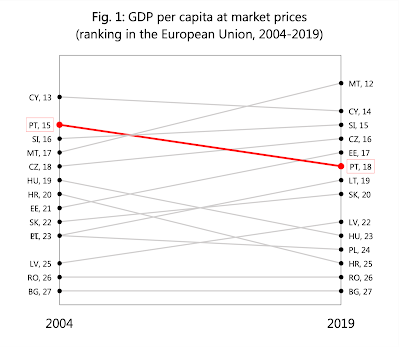Portugal Elections: Results and alternative systems
Last January's Portuguese elections were interesting on two accounts: a) the Socialist Party won an outright majority against all odds; and b) it did so with an exceptionally high concentration of seats per vote. While I don't dismiss the importance of the first one, people more capable than me have already discussed it at length. So, I wanted to concentrate on the second one for a change. A bit of background: Portuguese legislative elections have electoral circles at the district level, the most important first-level administrative subdivisions in continental Portugal. On top of that, there are also 4 other circles: the Azores, Madeira (both autonomous regions), the European, and the Outside of Europe circles. The number of seats assigned to each district (and region) depends on its magnitude (population-wise). The European and Outside of Europe circles elect a fixed number of 2 MPs each. District MPs are elected using a proportional system, namely the d'Hondt method. The
